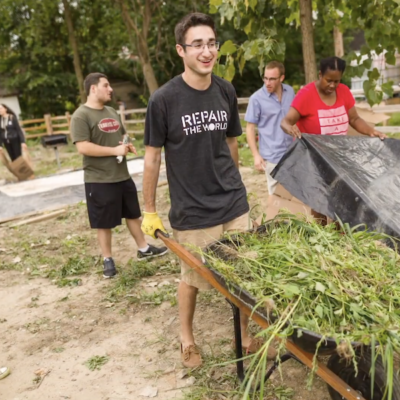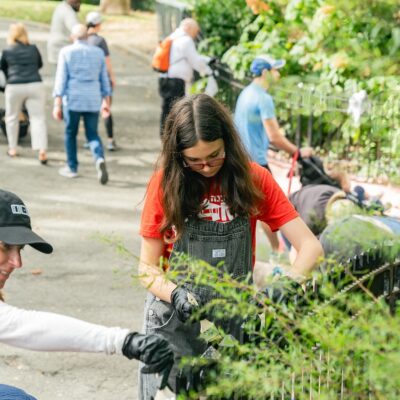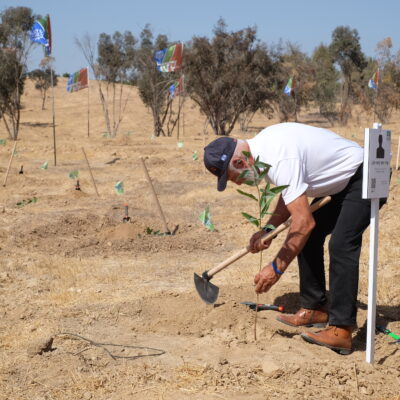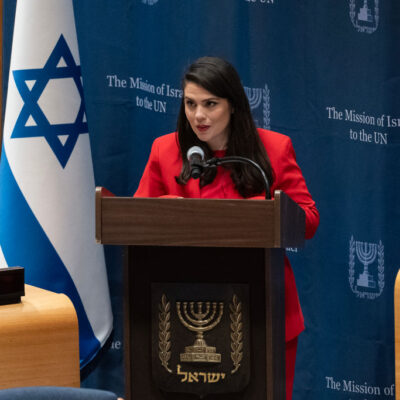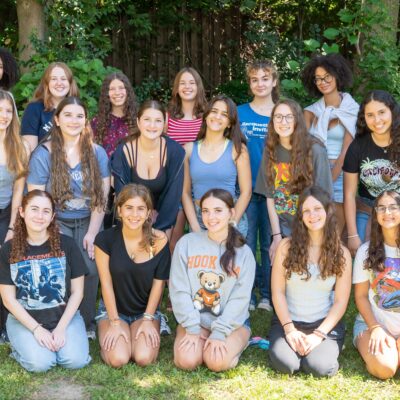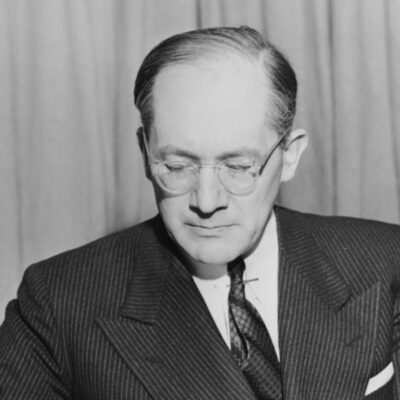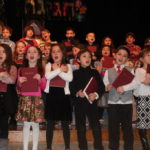Opinion
'WE ARE HERE TOGETHER'
A sanctuary on campus: Hebrew classrooms at American universities after Oct. 7, 2023
In Short
Small language classrooms are crucial spaces for learning about Israel and provide a safe space on campus.
“I would say, anuchnu po (we are here), and the students would respond, anuchnu po beyachad (we are here together).”
In the weeks after Oct. 7, 2023, this simple Hebrew call-and-response became a mantra in the classroom of one large public university. For students and their Israeli-born teacher, it was more than a language exercise: It was a grounding ritual, a way to feel safe and connected amid the tumult of protests and encampments happening outside the door.

Unsplash
Illustrative.
When people talk about what’s happened on American campuses since the Oct. 7 attacks, Hebrew classrooms rarely come up. But they should. Hebrew language classrooms sit in a unique position, straddling Jewish studies, Middle and Near Eastern studies and modern languages departments. Their students are usually Jewish, representing a range of backgrounds and religious upbringings; and the instructors — mostly Israeli-born and trained in language pedagogy — have the opportunity to get to know their students in ways that large lectures or seminars cannot provide.
According to the Modern Language Association, 4,125 U.S. college students were enrolled in Hebrew courses in 2021, a steep drop since 2006 (when enrollment was at 9,620 students). Numbers have long been a source of concern, with programs small and nearly all instructors hired on short-term contracts without the protections of tenure — all of which make the Hebrew classroom an overlooked corner of the university ecosystem.
While Hebrew instructors may not draw the attention of campus protests or high-profile faculty statements, they are providing meaningful and authentic education about Israel. As researchers who have studied and closely followed attitudes, enrollments and curricula in modern Hebrew language programs across a variety of educational contexts — and in the case of Avital, saw her own Hebrew class impacted by the events of Oct. 7, 2023 — we set out to learn more about how Hebrew university instructors navigated teaching Hebrew in their classes immediately after the Oct. 7 attacks and through the ensuing turmoil on many campuses. We asked: How did these events change their curriculum, and how were they affected professionally?
In interviews with 13 Hebrew instructors across private and state universities in red and blue states conducted during the fall of 2024, we heard stories of vulnerability, resilience and profound commitment. Amplifying these instructors’ stories carves out a space for thinking about the university Hebrew classroom as an important site of Jewish and Israel education on American college campuses.
Silence and fear
For many of the instructors, the initial shock came not only from the attacks in Israel but also from the indifference and silence of their colleagues.
“Nothing came from the top of the department to the rest of us,” one instructor said. “No one asked, ‘How is your family?’ We just walked around teaching, pretending nothing was happening.”
Others talked about the professional risk they felt they took by wanting their colleagues to address their pain and fears.
“I raised my hand at a departmental meeting,” one lecturer recalled. “I said, ‘We are Israeli. We are Jewish. Israel is my home. I’m not going to apologize for that.’ The response was silence. I don’t have tenure. But I had to say it.”
Experiences varied widely from campus to campus. A few instructors began to feel not only isolated but targeted as protests and encampments spread in the spring of 2024. “We became the enemy,” one Israeli-born lecturer recalled. “We got threats from students, emails, anonymous notes. It was awful.”
The impact on students was equally stark. Instructors reported Jewish students worrying that a Hebrew course on their transcript might mark them as targets. Some debated whether to scrub “Hillel” or “Chabad” from their résumés.
“It’s so scary to think our students are asking, ‘Who will look at my CV? Should I hide that I’m Jewish?’” one instructor reflected.
Yet despite fear, many students flocked to their Hebrew classes — not only for language instruction, but for a sense of sanctuary.
“There was even a point,” another instructor recalled, “where we offered extended office hours because students were afraid to go talk to anyone else on campus.”
Others conveyed their sense of being called upon to provide a space where students could ask questions and share their concerns. “If I can provide that student with that space — dayenu” one instructor added. “When that student turns around before leaving and says todah (thanks) — I don’t need more than that. That is the importance of what we do.”
The role of Hebrew instructors shifted overnight. In addition to teaching verb conjugations and new vocabulary words, Hebrew instructors offered comfort, perspective and even pastoral care. Absent any support from their department heads or college administrators, and seeing that their students were reaching out to them, they sought to address their students’ needs. “I was called to provide mental support and safety,” one said. “I had to weave coaching into my teaching — something I was never trained for.”
“Even walking into class past police and protestors, someone said, ‘Thank God we’re here,’” one teacher remembered. “The Hebrew class was the safe place.”
Beyond the textbook
For these instructors, the crisis reshaped what it meant to teach Hebrew. Modern language pedagogy has long emphasized integrating authentic “cultural realia”—songs, movies, recipes, news articles—into lessons. Indeed, universities promote language courses as a way to learn about another culture, its traditions, people and history. Instructors conveyed that after Oct. 7, 2023, every curricular choice felt politically fraught: which songs to play, which articles to read, which words to emphasize.
Some turned to music and culture, bringing in Israeli hip hop, Mizrahi music or Yemenite ballads as ways to remind students of Israel’s diversity and go beyond the headlines. Others wrestled with what to say — or not say — about the war itself. One instructor described putting on a live stream of Israeli evening news in an advanced Hebrew class, an activity she often did, only to watch a student burst into tears as names of fallen soldiers were read aloud. “It was too much,” she admitted.
For some, avoiding politics was the only viable strategy, especially for instructors who were not in favor of Israel’s military policies or against its government leaders. For others, teaching about the complexity of the political situation in Israel was impossible to avoid. One instructor recounted a conversation with a left-leaning student who hesitated to take Hebrew at all: “They didn’t want to align with a politics they disagreed with, but they were curious — wanting to understand Israeli discourse beyond the mainstream narrative.”
Hebrew programs may be small, but they matter. They are often the first and sometimes only space where Jewish students engage deeply with Israel as a culture, language, and living society. For this reason, university Hebrew instructors are both witnesses and participants in a historic moment of Israel education. The authentic curricular material that Hebrew instructors bring to their classrooms can shape how university students encounter, talk and learn about Israel in all of its complexity. High-quality language education teaches more than grammar and vocabulary: it offers a crucial space for students to interact with a different language and different culture, and hopefully come away knowing more about their own. With this in mind, identifying and documenting the role of the university Hebrew language classroom and its instructors’ efforts to teach American university students about Israel provides an opening to address some of the biggest challenges facing American Jewry.
Avital Karpman is an associate clinical professor and director of the Hebrew program at University of Maryland.
Sharon Avni is a professor of academic literacy and linguistics at Borough of Manhattan Community College.

 Add EJP on Google
Add EJP on Google